
Empowering wellbeing and health through nature
A virtual workshop to inspire on how to improve regional and municipal policies to protect nature and its services during the EU Regions Week in October.
Matching conservation priorities with regional development policies while paying special attention to ERDF fund availability is a critical challenge to deploy robust and effective biodiversity conservation strategies at European and regional levels. However, the development of conservation priorities requires the adequate mobilisation of consistent, relevant and structured biodiversity information aimed at feeding and eventually guiding decision-making.
Better prioritization of biodiversity conservation efforts using evidence-based methods
BID-REX aims to enhance natural value preservation through improved regional development policies by creating/reinforcing the link between relevant biodiversity data and conservation decision-making processes. More specifically, it aims to facilitate the use of biodiversity information and increase the impact of ERDF allocation in the preservation of the European natural heritage by providing decision-making processes with appropriate biodiversity information.
€1,606,415.00
Environment and resource efficiency
The BID-REX project develops an interactive interregional learning process aimed at facilitating the exchange of approaches, tools and methods that have proven useful for bridging the existing gap between environmental information availability and decisions. More specifically, the work plan has been designed to allow a logically planned interregional and local learning process organized around conferences, workshops and more in depth visits to explore and exchange best practices. The planning of these activities has allowed for a progressive integration of the knowledge gained.
Thematic workshops, as main exchange activities, were the principal axis of the project work plan. The knowledge exchanges on good practices and discussion around regional challenges and potential solutions has been based on the experiences and background of each partner and local stakeholder group. The topics of the exchange activities followed a clear linear and interrelated flow starting from the needs of the regions, going through the tools and methodologies and ending with the impacts on policies.
| Semester 1 04/2016 09/2016 | LAUNCHING THE PROJECT Catalonia (Spain) |
| Semester 2 10/2016 03/2017 | INFORMATION NEEDS FOR DECISION MAKERS Wallonia (Belgium) |
| Semester 3 04/2017 09/2017 | MATCHING INFORMATION TO NEEDS Basque Country (Spain) |
| Semester 4 10/2017 03/2018 | IMPROVING DATA FLOWS North Great Plain Region (Hungary) |
| Semester 5 04/2018 09/2018 | CAPACITY BUILDING FOR DECISION MAKERS AND DATA PROVIDERS Site visit to different UK institutions Norfolk County (United Kingdom) |
| Semester 6 10/2018 03/2019 | HOW LEARNING PROCESS HAS IMPACTED OUR ACTION PLANS Ljubljana Marsh (Slovenia) |
An Action Plan for each region have been prepared providing details on how the lessons learnt from the workshops could be implemented in order to improve the policy instrument that is addressed within each region. Regular meetings with the regional Local Stakeholder Groups have been organized to identify the most useful outputs for each region to be included and adapted into their respective Action Plan. Furthermore, technical documents resulting from the corresponding thematic workshop have also been published to expand the impact of the results beyond the partnership.
Catalonia has chosen Axis 6 (Protect the environment and promote resource efficiency) from OP 2014-2020 as one of the priorities for EDRF. Within Axis 6, there are 2 strategic objectives (SO) directly related to protection, development and management of natural areas. Catalonian OP defines SO 6.3.2 like an opportunity to create and preserve adequate infrastructures in natural areas to preserve and reinforce their touristic potential. Moreover, this SO proposes the valorisation of natural and rural areas to improve their socioeconomic development. Likewise, SO 6.4.1 has focused on to the preservation of natural heritage in rural areas through the development of green infrastructure, restoration and management of habitats and a better dissemination of the protected areas natural values to citizens. Most of these activities are directly influenced by our knowledge of the current status of biodiversity in these areas to achieve more sustainable activities and enterprises in rural and natural areas.
Objectives:
Catalan website of BID-REX: mediambient.gencat.cat/ca/05_ambits_dactuacio/patrimoni_natural/sistemes_dinformacio/interreg-europe-bid-rex/
PO6 « Conserve and protect the environment and promote resources efficiency» is one of the 7 priorities of the OP and is closely related to the objective 1 of the Basque Environmental Framework Programme 2020. The Basque Government has incorporated the environment as a cross-cutting element that decisively contributes to wellbeing, job creation and developing a future-looking and strong economy. To create appropriate policies to protect natural spaces and biodiversity we must understand how the species within the habitats interact, and how they might respond to changes and pressures, natural and manmade, which is directly related with TO1 (Strengthening research, technological development and innovation) and TO2 (Enhancing access to, and use and quality of, information and communication technologies). TO6 should be also synergetic with the other objectives, i.e. promoting nature-based employment opportunities and promoting green infrastructure, developing nature-friendly transport corridors, developing institutional capacity and public administration, creating destinations for educational visits to enhance knowledge on the natural environment, etc. The role of biodiversity objectives and criteria would be to strategically encourage projects providing benefits to biodiversity and/or ensure that possible negative impacts of projects on biodiversity are avoided. The objectives and criteria should be agreed from a regional network of knowledge.
Basque website of BID-REX: www.euskadi.eus/bid-rex/
Objective 6.1 of the ERDF promotes Investment in green infrastructure (GI) and actions to support provision of ecosystem services to increase local natural capital and support sustainable economic growth. These activities aim to reverse decline in, restore and enhance degraded ecosystem services, and halt biodiversity loss. The improved local environment will serve as a catalyst to economic growth.
The United Kingdom is below trajectory for achieving Biodiversity 2020 targets of 50% of Sites of Special Scientific Interest (SSSIs) to be in favourable condition by 2020 with a consequent impact on the condition of the Natura 2000 network. Targets for the policy are an increase of GI area and surface area of habitats supported in order to attain a better conservation status.
There is also an opportunity to improve environment protection through investments in green and blue infrastructure to develop more efficient use of natural and manmade capital. Currently however, implementation of the policy instrument often encounters problems with the type and accessibility of data for targeting GI, informing management and for decision-making.
Objectives:
Marche Region has addresses the Regional Ecological Network (REM) as the political instrument to preserve biodiversity and the care of landscape as shared values for the benefits of the community. REM has been defined at regional level for implementing recommendations on development of ecological functioning. It is, therefore, necessary to deepen at local level the knowledge and management tools, in particular those referred to the “nodes” of Network made of ecosystems and habitats of species protected at EU level.
Detailing the REM through monitoring results allows the updating and further implementation of the informative system (SIT Biodiversità), and permit to implement REM among Public Deciders, policy makers and environmental stakeholders. Thanks to the project it will be possible to create a methodology for sharing biodiversity information with policy makers to have an impact on regional policies in different sectors: from agriculture to territorial planning, tourism, all linked to the ERDF and/or EARDF resources, so to integrate existing policies, having a leverage effect on the resources employed.
Objectives:
Regulation on Ljubljana Marsh Natural Park is a keystone legal document establishing the area, nature conservation goals, rules and regulations for obtaining those goals and long-term development strategies of the Park. Regulation foresees implementation of measures for long-term conservation of species and habitats within the Ljubljana Marsh Nature Park (Natura 2000 area) where conservation mainly depends on sustainable agricultural practices. Ljubljana Marsh Nature Park covers Slovenia’s largest complex of wet, traditionally managed grasslands with hedges and forests, shrubs and watercourses. The area is well-known for its rich biodiversity, which is the result of specific cultivation practices which are no longer economically viable. However, limited nature conservation resources and user conflicts call for establishment of a clear and inclusive prioritization process based on well-structured biodiversity information and exchange of knowledge on agricultural practices, which will identify priority sites, optimal agricultural practices and financial instruments for implementation.
The Ljubljana Marsh has been identified as one of the priority areas in the Natura 2000 Management programme for Slovenia for the period 2014-2020 (PUN2000). However, the suggested measures have a focus on qualification Natura 2000 species in terms of the Bird and Habitat Directive implementation, but a wider biodiversity frame is necessary to achieve effective sustainable measures. The need for prioritization and knowledge exchange on agricultural practices was also identified in the draft of Ljubljana Marsh Nature Park management plan, which is under preparation and which can be largely improved by broader biodiversity views.
Objectives:
Hungary elaborated its Environment and Energy Efficiency Operational Program 20142020 (EEEOP) aiming to implement economic growth based on the high added value production and job creation in accordance with the protection of human life and environmental elements. From its 5 priority axes, Priority Axis 4 is tackled in the project: ‘Nature protection and wildlife protection related developments’ with the objective of protecting biodiversity and soil, promoting ecosystem services e.g. through Natura 2000 and green infrastructures. The EEEOP is related to EU 2020 thematic objectives 4, 5 and 6 and is fully funded by ERDF We deal with Measure 3 from Priority Axis 4 titled: ‘Strategic studies for the national implementation of the long term conservation and development of natural values of community interest and the objectives of EU Biodiversity Strategy 2020’. In recent years, there has been a concrete demand on behalf of developers to have adequate tools and applying new data and information and to integrate those to support the decision making process. The definition and planning of priorities are strongly required during the development activities using ERDF sources. Resulting in new synergies, an improved, more efficient decision making process will provide a better environment for updated governance.
Objectives:
Hungarian website of BID-REX: www.bid-rex.hu
The Regional Policy Statement for Wallonia (RPSW) 2014-2019 aims clearly under the point XXI /2 the strengthening of biodiversity and nature conservation through the development of nature reserves, the Natura 2000 program and European nature restoration LIFE projects by improving the partnership dynamics between public authorities, associations, owners and managers of the sites, by evaluating management measures, simplifying procedures and adapting them to local and economic realities. On 20th July 2015, the EC has adopted the Walloon rural development program (PWDR), which means Wallonia need to improve all measures described inside. Particularly, the measure 7.6 “Restoration of the natural heritage and preserving biodiversity” aims to implement the goals of the policy instrument RPSW.
DGO3 is responsible for this implementation. The Walloon Government has also agreed upon the PWDR on July 23th, giving an additional instrument to nature conservation.
Objectives:

A virtual workshop to inspire on how to improve regional and municipal policies to protect nature and its services during the EU Regions Week in October.
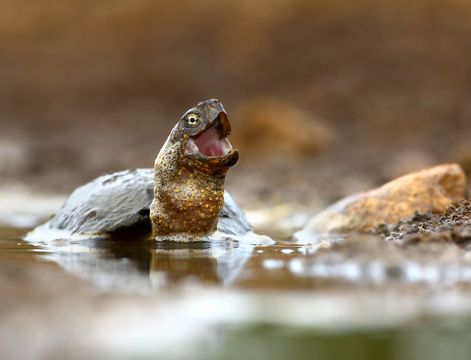
The Pilot Action at Ljubljana Marsh Nature Park finalized obtaining valuable recommendations for evidence-based conservation of its own biodiversity.
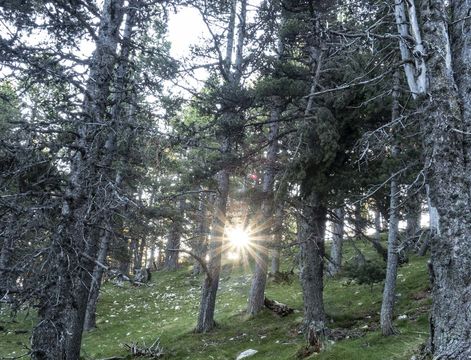
Catalonia is experiencing a progressive and widespread decline in its biodiversity, according to the report ‘State of Nature in Catalonia 2020′
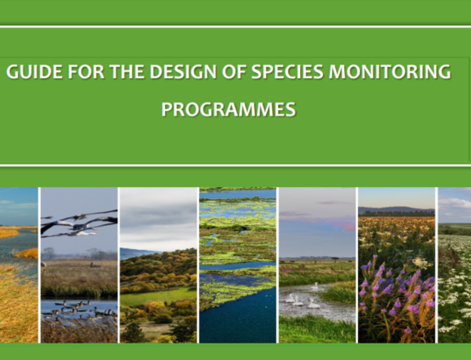
This is a tool for the design of monitoring programs, to evaluate changes in conservation status and assess progress towards conservation of the wild species.

BID-REX project attended to the Spanish on-line training sessions regarding the Prioritised Action Framework 2021-2027 to finance Natura 2000
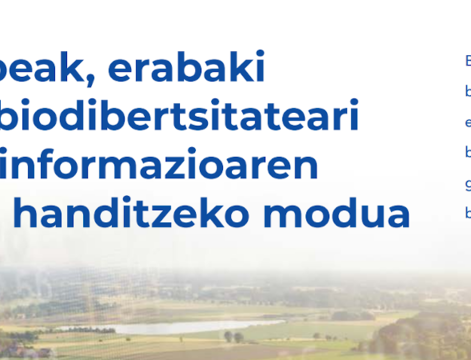
Now, stakeholders of Basque Country have access to the report in their own language, which will undoubtedly bring this useful guide closer to their daily work.

A video summarising the accomplishments of the BID REX project
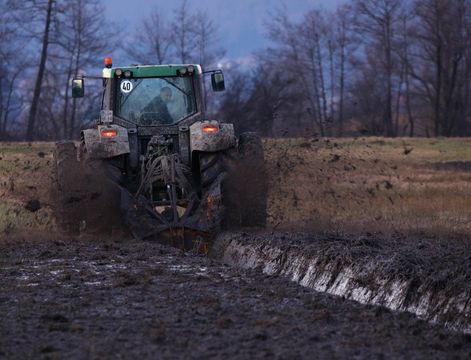
The first outputs of PILOT ACTION were presented and discussed online with decision makers and managers of Ljubljana Marsh Nature Park.
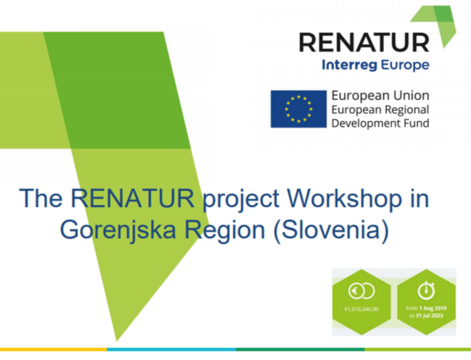
BID-REX contributed to the 2nd RENATUR workshop sharing Good practices about nature conservation in peri-urban areas.
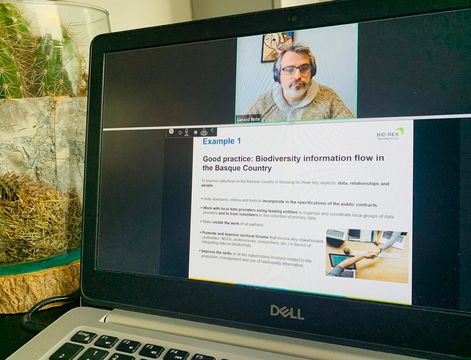
BID-REX took part in the webinar organized by the Policy Learning Platform during the EU Green Week 2020 as an inspirational example for others